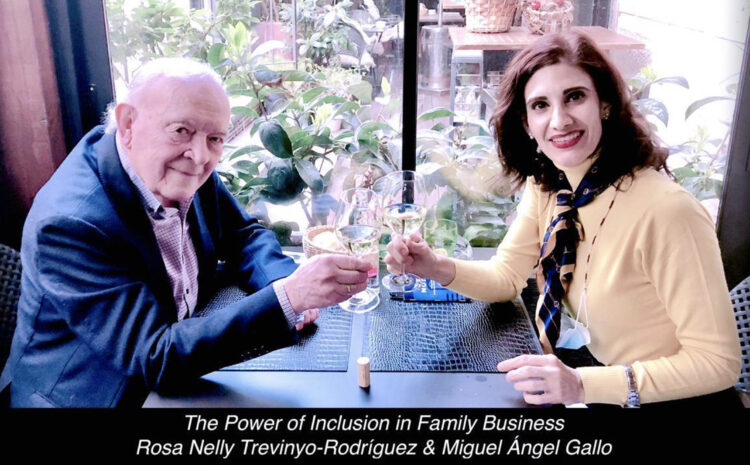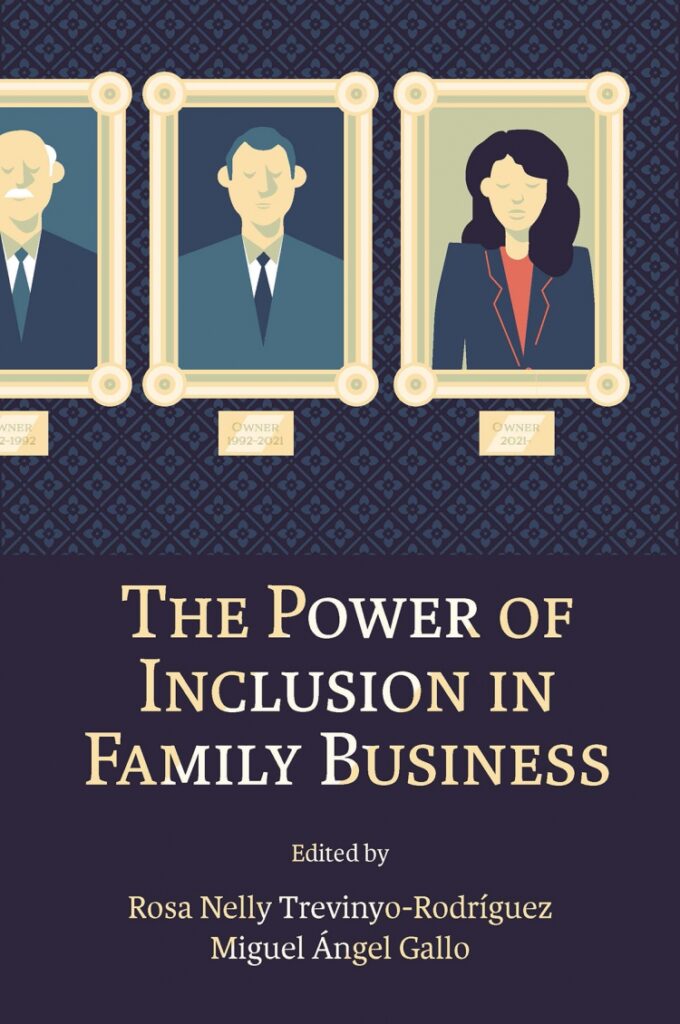Interview with Dr. Trevinyo-Rodríguez: Gender Diversity In Enterprises Is Profitable, Must Be Capitalised On

“Even though many daughters have legal ownership of their family-run business, meaning they have inherited the firm’s shares and voting rights, along with a first-class formal education, many of them aren’t equipped enough to be responsible owners. Most of them haven’t explored their own negotiation and financial skills and can’t even counter question their own brothers’ decisions on investments and other dealings”, says Dr. Rosa Nelly Trevinyo-Rodríguez, as she talks to me about her book The Power of Inclusion in Family Business, a panorama of insights by business scholars and practitioners from 10 different countries, who share their perspectives for a common purpose: to provide gender sensitive-consulting practices and culturally-adapted recommendations to shape a more inclusive family-in-business and family-firm environment.
A successful entrepreneur herself, running a global consulting firm that advises multigenerational enterprising families, Dr. Rosa Nelly’s erudite views through the interview alone establish the compelling lack of participation of women in enterprises run by their own families.
During our discussion, she goes on to explain the daughters’ inclusion challenge, a term aptly coined by her and the co-editor of the book, Miguel Ángel Gallo. It refers to factors that contribute to the inability to strategically capitalize on the gender diversity within families. Emphatically explaining the critical need to encourage the development of women as responsible leaders, owners and wealth stewards, she stresses on the fact that ‘inclusion begins at home’, and these challenges can only be countered if tackled first within the family, with the intent to involve daughters in the enterprise and its decision-making right from the beginning. Her book thus lays vehement emphasis on the need to visualize the potential of daughters, and to help themselves envisage what they can achieve, while supporting them in the process of adapting and countering the cultural biases that exist.

I am curious to know why her focus is ‘family firms’, because limitations that are imposed on women are prevalent in sectors across-the-board, right? But Dr. Rosa Nelly has an insightful perspective on why, in her opinion, they matter so much. Besides the fact that she hails from a family-firm environment, she explains such businesses are sustainable for the nation’s economy and don’t really depend on the economic and political issues circling the country, even though the economic and political scenario does affect them. Ultimately, all they depend on is responsible ownership, and therefore ‘inclusion’ is critical for the family’s wealth and for the success and longevity of the business. Globally, in 83% of the family firms, the main decision-makers in terms of wealth investment and otherwise happen to be men, which is a huge number.
She firmly believes those stats can change through six factors critical to ensure inclusion, which work in parallel, and are more about the family than the business itself – “Love within the family to acknowledge that both, sons and daughters, have the same right to reach their full-potential; Learning and understanding that business knowledge, socialization, information, and even asset holding should not be subject to gender; Freedom which implies acceptance along the way; Confidence of the family in knowing that daughters can handle the business equally well; Certainty of what to expect in the future in terms of work opportunities in the enterprise; and lastly Adapting to changes the business world is going through, and acquiring the knowledge and the skills to navigate those transformations.”
Creating wealth is truly difficult, especially in economies replete with financial, political and social gaps. This highly thought-provoking book thus, advocates that if you already have built up some wealth, you must maximise it by instilling the idea in the next generation, both sons and daughters, that the wealth must be preserved. And excluding daughters from the business, according to Dr. Rosa Nelly, would only mitigate potential profits. “We, as women prepare women, we can add value because we also have a connect with the values of the family, and with our own skill sets we can highlight the value of various potential resources, but we need to be included. We need to feel we belong there”, and that is a message that needs to reach parents and children extensively…especially the daughters in entrepreneurial families!
About the writer: Asma is a Senior Editor (Communications, Policy & Advocacy), based in New Delhi, India.
